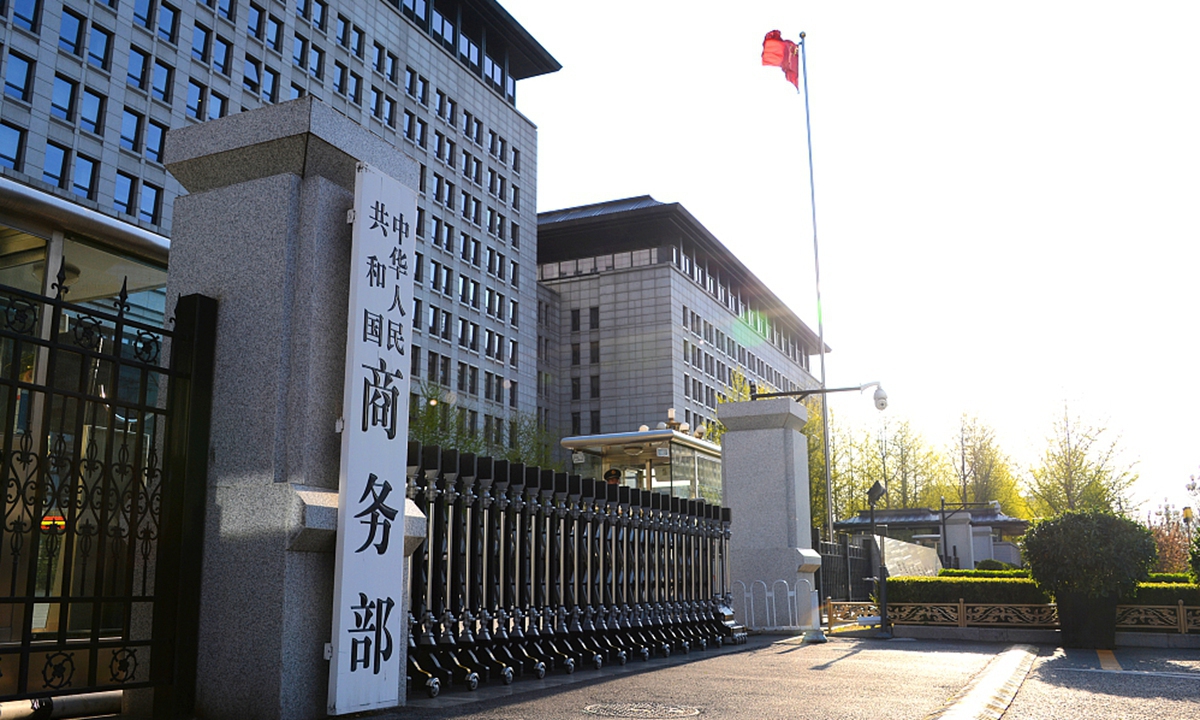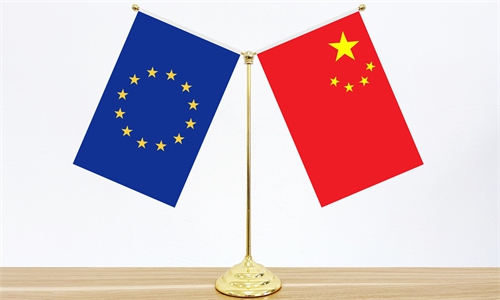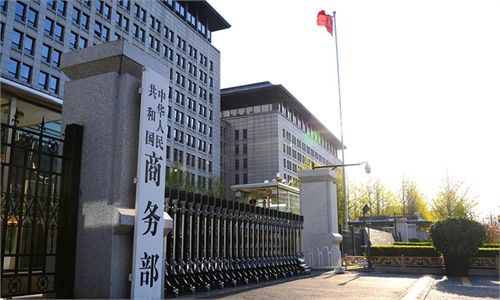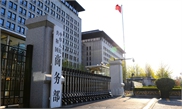
The Ministry of Commerce Photo: VCG
China announced on Tuesday that it would take temporary anti-dumping measures against brandy imported from the EU, triggering a strong response in the EU. The stocks of brandy companies such as Hennessy and Rémy Cointreau also fell as a consequence. China is a key market for EU brandy sales and profits. No wonder the Politico website said that the move sparks "fear" of the relevant European industries. In response to reports that the EU would file a "strong complaint" at the World Trade Organization (WTO), the spokesperson of China's Ministry of Commerce said on Wednesday that China's move is a "legitimate trade remedy measure and entirely in accordance with WTO rules." Therefore, if the EU really goes to the WTO to file a lawsuit, it is not going to win.Some in Europe are far-fetched and link the case with Europe's action to impose tariffs on Chinese electric vehicles, deliberately distorting the legitimacy of the Chinese government's approach. Such an attitude is not conducive to the resolution of China-EU trade disputes. Chinese authorities received the application from the China Liquor Industry Association on November 30, 2023, strictly followed the procedural regulations for anti-dumping investigation, and fully listened to the opinions and suggestions of the EU Delegation to China, EU exporters and their associations, etc. This is a legitimate response in accordance with China's Anti-dumping Regulations to the damage caused to China's domestic industries by the dumping of relevant brandy products. The analysis of damage and causality is based on objective data of relevant domestic industries. The procedures are legitimate, the ruling is fair, and the law enforcement is compliant, effectively protecting the domestic brandy industry threatened by substantial damages. This reflects China's attitude to safeguard the legitimate rights and interests of the industry and enterprises.
Some Western media and politicians simplify and securitize complex international economic and trade cases and overexaggerate the political linkage behind them regardless of the trade logic. They link the brandy anti-dumping case and the electric vehicle countervailing case. In fact, they are confusing two different types of trade policy actions. The brandy anti-dumping case is mainly based on market investigation and damage assessment at the economic level, and trade remedies are implemented to target the actual dumping behavior and negative impact of EU brandy in the Chinese market. China followed the procedures and rules of the WTO and made the decision on the basis of a legitimate investigation, not in response to the EU's political actions.
Trade issues should be based on facts and legal grounds, not political motivations. In the case of the anti-dumping investigation into brandy, China, at the request of its industry, conducted a detailed and scientific investigation into the damage caused by dumping, and extensively gathered comments and opinions from all stakeholders. However, in the case of the EU's anti-subsidy investigation into EVs, the European Commission initiated the investigation without a request from the EU industry, which clearly goes against market will. Its investigation targets were highly selective, excluding top-ranked EU auto exporters, raising numerous issues of non-compliance, lack of transparency, and unfairness. Who is violating fair trade principles? The answer is clear.
For large economies like China and the EU, which have significant bilateral trade volumes, resolving issues through consultations is a normal process. On October 8, when responding to the brandy case, Paolo Gentiloni, European Commissioner for Economy, was busy justifying the EU's actions against Chinese EVs, which indicates that he is fully aware of the unreasonableness of imposing tariffs on Chinese EVs and the weak basis for such actions. Indeed, the importance of the Chinese market to the EU's brandy industry is undeniable. Chinese consumers also welcome high-quality goods from Europe. However, what is more important is that the EU has been hyping the concept of "de-risking" from China in recent years and has continuously introduced trade and investment restrictions, severely damaging the mutual trust and cooperation environment in China-EU economic and trade relations. European industries are increasingly on edge, worried about triggering larger-scale trade disputes or even a full-blown trade war. What the EU should really think about is why the industry's concerns are so strong, and whose policies have made the EU so sensitive?
In fact, the reaction of European industries proves that China and the EU cannot and should not "decouple," nor is it feasible to do so. In 2023, despite the global trade downturn, China-EU trade reached $783 billion, with trade exchanges averaging nearly $1.5 million per minute. Two-way investment stock between China and the EU exceeds $250 billion, and companies from both sides continue to view each other's markets favorably. According to the Business Confidence Survey 2023 released by the European Union Chamber of Commerce in China, more than 90 percent of the surveyed European companies plan to make China their investment destination. The 2023 Annual Report of the China Chamber of Commerce to the EU shows that 80 percent of surveyed Chinese companies plan to enhance their business in Europe. Given the current complex and ever-changing international situation, China and the EU should address the real needs of local companies, resolve crises through dialogue and negotiation, and firmly promote international cooperation to tackle challenges, while jointly advancing multilateralism and global governance.
Trade disputes should be evaluated through objective market data and scientific survey results, and resolved through equal consultation and dialogue, rather than using political retaliation or diplomatic means as threats, which will lead to the deterioration and escalation of the situation. Hopefully the European side can face up to the dumping behavior of its own companies, promptly eliminate the unfair practices of some companies, correct politically motivated trade protectionist behaviors, truly demonstrate practical actions to implement cooperation will, and return to the right track of win-win.



